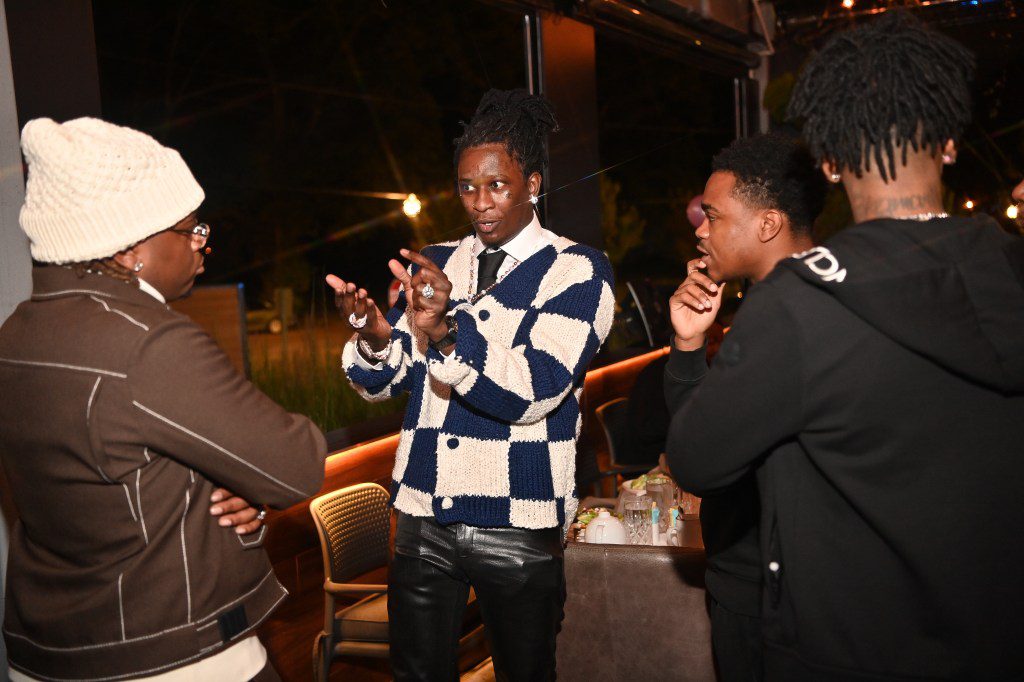Young Thug YSL Trial Judge Ural Glanville Recused From Controversial Case

It’s official: Judge Ural Glanville, presiding over Young Thug‘s lengthy YSL RICO case, has been recused of his duties in this trial. This comes after accusations of foul play from Thugger’s attorney, Brian Steel.
As reported by The AJC, Fulton County Judge Rachel Krause granted the motions Monday (July 15) filed on behalf of the Atlanta rapper and his co-defendant, Deamonte Kendrick, to recuse Judge Glanville after he held a private meeting with prosecutors and key state witness Kenneth Copeland. The judge was questioned about the meeting in open court by Steel, resulting in Glanville questioning how the attorney knew of the meeting. Steel’s refusal to share his source resulted in the lawyer being arrested and held in contempt of court.
According to documents obtained by Fox 5, Judge Krause stated that, while the court has “no doubt that Judge Glanville can and would continue presiding fairly over this matter if the recusal motions were denied,” the “necessity of preserving the public’s confidence in the judicial system” played a significant role in her decision.
ATLANTA, GA – OCTOBER 25: Gunna, Young Thug and 21 Savage attend dinner celebrating Young Thug’s album “Punk” on October 25, 2021 in Atlanta, Georgia.(Photo by Prince Williams/Wireimage)
While motions to recuse Judge Glanville were granted, one motion “to quash the show cause order and recuse Judge Glanville” was denied due to it being “moot.”
Doug Weinstein, the attorney for Young Thug’s co-defendant Deamonte Kendrick, believes his client should now be granted bond seeing as Glanville has been removed from the highly-publicized trial.
“While we continue to respect Chief Judge Glanville, we agree with Judge Krause that Judge Glanville’s actions at least give the appearance of impropriety. We also maintain that Chief Judge Glanville was biased against Mr. Kendrick and the other defendants in this case,” Weinstein said. “We look forward to trying this case before an unbiased judge to a just conclusion that will free Mr. Kendrick.”
Kenneth Copeland, the witness who was said to have had the inappropriate meeting with Judge Glanville, later took to the stand to retract many of his statements made to authorities, claiming he was “lying” to protect himself.

Clouds roll over the Fulton County Courthouse on November 27, 2023 in Atlanta, Georgia. Opening statements are set to begin in the case against 31 year old US rapper Young Thug and 28 others, who are facing a racketeering indictment accusing the defendants of a number of offenses that support an overarching conspiracy charge, including murder, assault, carjacking, drug dealing, and theft. (Photo by Christian MONTERROSA / AFP) (Photo by CHRISTIAN MONTERROSA/AFP via Getty Images)
“Every time they grabbed me, I had a different story for them,” Copeland testified on the stand. “I was not truthful, I was saying whatever they wanted me to say…I was trying my best to convince them that I didn’t do nothing…You asked me if I was being truthful. I know I wasn’t being truthful…Whenever they was questioning me, I was lying. I was making up stories.”





